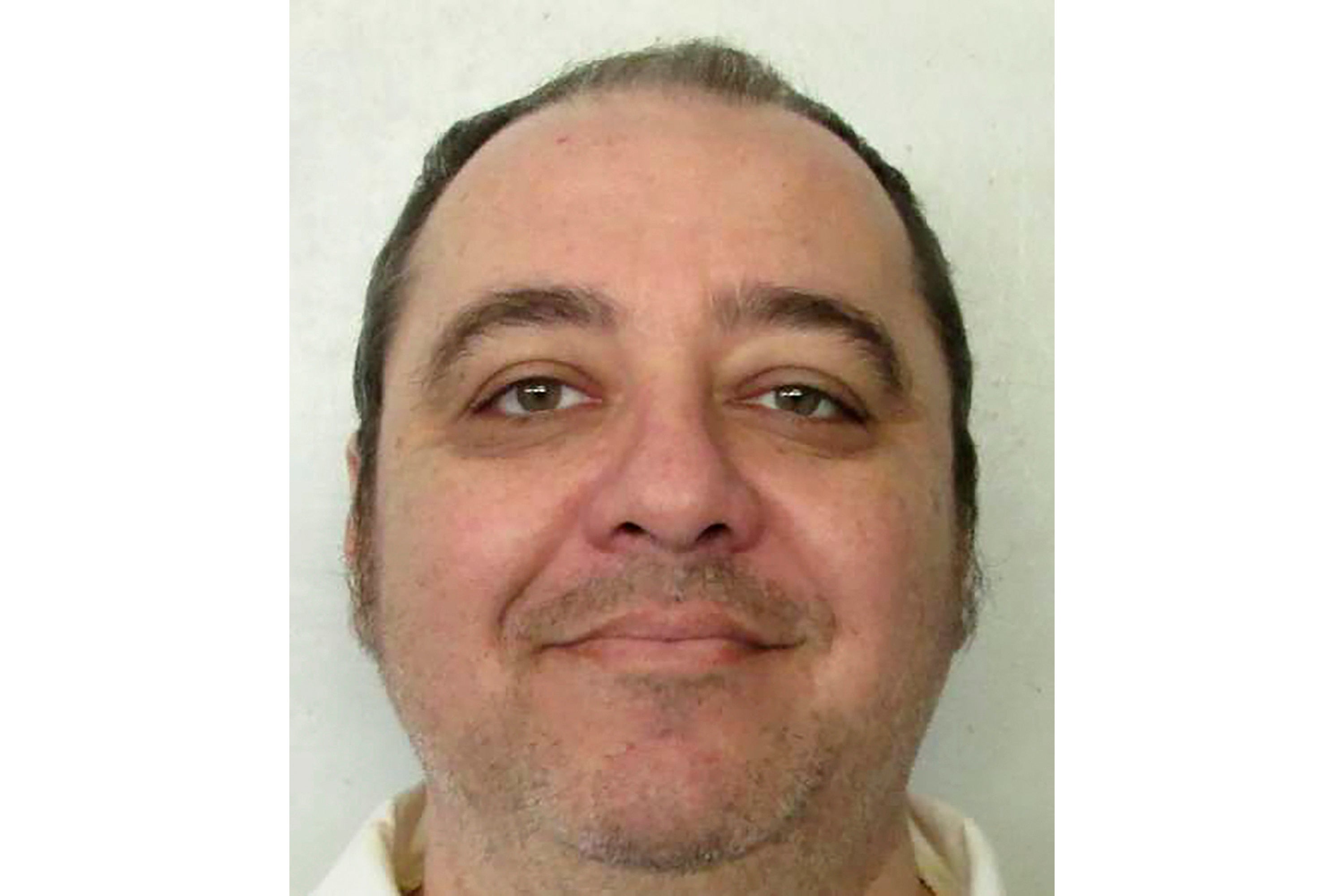Federal judge says Alabama can carry out nation’s 1st execution using nitrogen gas; appeal likely
A federal judge says Alabama can carry out the nation’s first execution using nitrogen gas despite claims the method is cruel and untested

Your support helps us to tell the story
From reproductive rights to climate change to Big Tech, The Independent is on the ground when the story is developing. Whether it's investigating the financials of Elon Musk's pro-Trump PAC or producing our latest documentary, 'The A Word', which shines a light on the American women fighting for reproductive rights, we know how important it is to parse out the facts from the messaging.
At such a critical moment in US history, we need reporters on the ground. Your donation allows us to keep sending journalists to speak to both sides of the story.
The Independent is trusted by Americans across the entire political spectrum. And unlike many other quality news outlets, we choose not to lock Americans out of our reporting and analysis with paywalls. We believe quality journalism should be available to everyone, paid for by those who can afford it.
Your support makes all the difference.Alabama will be allowed to put an inmate to death with nitrogen gas later this month, a federal judge ruled Wednesday, clearing the way for what would be the nation’s first execution under a new method the inmate’s lawyers criticize as cruel and experimental.
U.S. District Judge R. Austin Huffaker rejected Alabama inmate Kenneth Eugene Smith’s request for an injunction to stop his scheduled Jan. 25 execution by nitrogen hypoxia. Smith’s attorneys have said the state is trying to make him the “test subject” for an untried execution method, and are expected to appeal the decision.
The question of whether the execution by nitrogen gas can ultimately proceed could end up before the U.S. Supreme Court.
The state’s plans call for placing a respirator-type face mask over Smith’s nose and mouth to replace breathable air with nitrogen, causing him to die from lack of oxygen. Three states — Alabama, Mississippi and Oklahoma — have authorized nitrogen hypoxia as an execution method, but no state has attempted to use it so far.
Smith, now 58, was one of two men convicted of the murder-for-hire slaying of a preacher’s wife in 1988 that rocked a small north Alabama community. Prosecutors said Smith and the other man were each paid $1,000 to kill Elizabeth Sennett on behalf of her husband, who was deeply in debt and wanted to collect on insurance.
Smith survived the state’s prior attempt to execute him. The Alabama Department of Corrections tried to give Smith a lethal injection in 2022 but called it off when authorities could not connect the two intravenous lines required to execute him.
The judge’s ruling letting the nitrogen execution plan go forward came after a court hearing in December and legal filings in which attorneys for Smith and Alabama gave diverging descriptions of the risks and humaneness of death from exposure to nitrogen gas.
Alabama Attorney General Steve Marshall’s office had argued in court filings that the deprivation of oxygen will “cause unconsciousness within seconds, and cause death within minutes.” The state compared the new execution method to industrial accidents in which people passed out and died after exposure to nitrogen gas.
But attorneys for Smith had argued that the new execution protocol is riddled with unknowns and potential problems that violate the constitutional ban on cruel and unusual punishment.
Smith’s attorneys noted in court filings that the American Veterinary Medical Association wrote in 2020 euthanasia guidelines that nitrogen hypoxia is an acceptable method of euthanasia for pigs but not for other mammals because it could create an “anoxic environment that is distressing for some species.”
Smith’s attorneys also argued the gas mask, which is fitted over his nose and mouth, would interfere with Smith’s ability to pray aloud or make a final statement before witnesses in his final moments.
The Alabama attorney general’s office argued that Smith’s concerns are speculative.
The Alabama prison system agreed to minor changes to settle concerns that Smith’s spiritual adviser would be unable to minister to him before the execution. The state wrote that the spiritual adviser would be able to enter the execution chamber before the mask was placed on Smith’s face to pray with him and anoint him with oil. The Rev. Jeff Hood last month withdrew a lawsuit against the department.
The case that led to the death penalty for Smith shocked north Alabama at the time.
The murder victim Sennett was found dead on March 18, 1988, in the home she shared with her husband in Alabama’s Colbert County. The coroner testified that the 45-year-old woman had been stabbed eight times in the chest and once on each side of the neck. Her husband, Charles Sennett Sr., then the pastor of the Westside Church of Christ, killed himself when the murder investigation focused on him as a suspect, according to court documents.
Smith’s initial 1989 conviction was overturned on appeal. He was retried and convicted again in 1996. The jury recommended a life sentence by a vote of 11-1, but a judge overrode the recommendation and sentenced Smith to death. Alabama no longer allows a judge to override a jury’s decision on death penalty decisions.
John Forrest Parker, the other man convicted in the slaying, was executed in 2010.